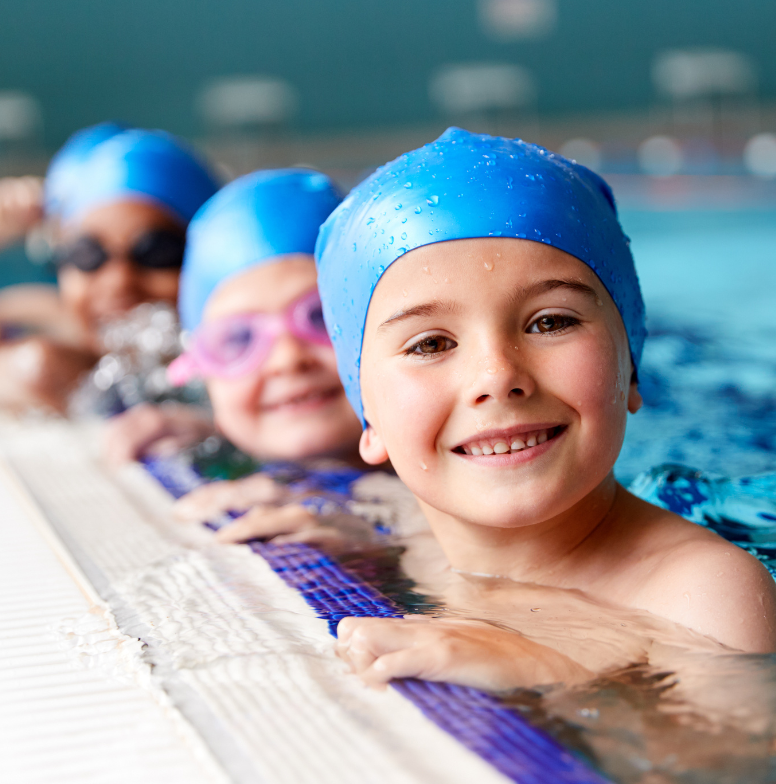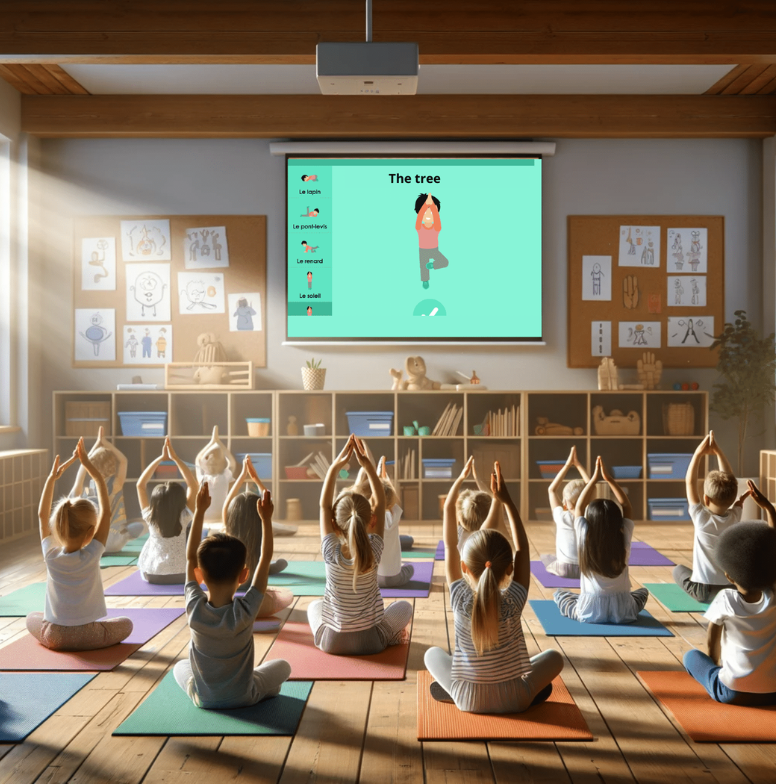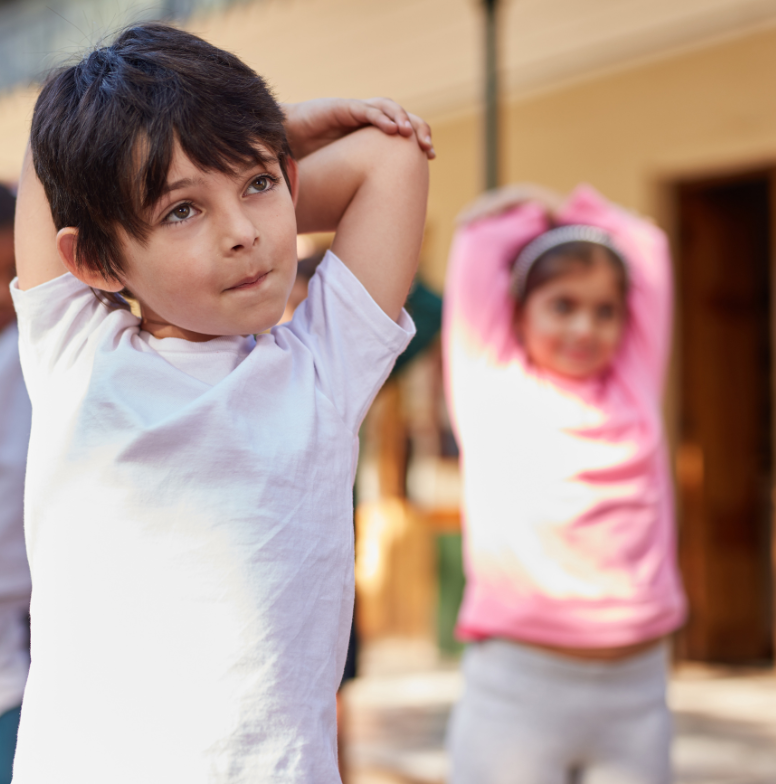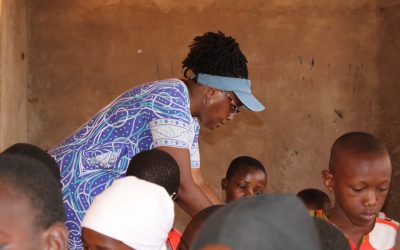Extracurricular activities, those educational and playful spaces that complement the school day, play a crucial role in children’s development. By offering a variety of enriching activities outside of school hours, they foster each child’s development on different levels, whether academic, social, cultural or, as we’re about to discover, physical and emotional. In this article, we take a look at a particularly important aspect of extracurricular workshops: sports activities. These activities, often wrongly neglected, are powerful levers for promoting children’s health and well-being.
The benefits of sporting activities for children
Sports activities offer an excess of benefits to children, going far beyond simply improving their physical condition. They are essential to their overall development and help shape healthy, well-balanced individuals. Here are some of the most notable benefits children can derive from participating in sports activities as part of extracurricular workshops:
Strengthening physical health
Sporting activities are an effective way of maintaining children’s physical health. They promote the development of muscles, bones and the cardiorespiratory system. Children who play sports regularly tend to be more physically active, which reduces the risk of health problems linked to a sedentary lifestyle, such as obesity and cardiovascular disease. What’s more, these activities strengthen the immune system, helping children to fight off infections more effectively.
Developing motor skills
Taking part in sports activities helps children develop their motor skills, whether running, jumping, throwing or coordinating their movements. These motor skills are essential in many activities of daily life and help to improve children’s self-confidence.
Promoting an active lifestyle
By exposing children to sporting activities from an early age, we encourage the creation of healthy routines. They are more likely to maintain an active lifestyle in adulthood if they have been positively exposed to sport from childhood. This habit can have a lasting impact on their long-term health.

Improving mental health
Sporting activities not only benefit the body, they also have a positive impact on children’s mental health. Regular exercise promotes the release of endorphins, the “happy hormones”, which can reduce stress, anxiety and symptoms of depression in children. What’s more, they offer them an opportunity to socialize, share and develop essential social skills.
Sports activities in extracurricular workshops
Extracurricular workshops have become the ideal place to introduce sporting activities into children’s lives. They are an ideal complement to formal education, offering a relaxed and stimulating environment where children can explore different sporting disciplines. This section explores how sports activities are integrated into extracurricular workshops and the essential role of sports educators in this process.
A wide range of sporting activities
They offer a variety of sporting activities to suit every child’s tastes and preferences. From classic sports such as soccer, basketball and gymnastics to less conventional activities like yoga, contemporary dance and climbing, the choices are varied. This diversity allows children to explore different disciplines, discover their talents and find activities they are passionate about.
The role of sports educators
Sports educators play a central role in the success of extracurricular sports workshops. They are responsible for planning and implementing sports programs, ensuring that they are adapted to the age and skill level of the children. Sports educators are also responsible for encouraging children’s active participation, promoting the values of fair play and cooperation, and ensuring safety during activities.
They act as role models for the children, helping them to develop sporting skills, but also values such as perseverance, respect for rules, and dealing with failure. They create an inclusive environment where every child feels valued and encouraged to progress at his or her own pace.
Examples of extracurricular sports workshop programs
Many schools and organizations have set up extra-curricular workshop programs specifically designed to promote sporting activities. These programs may vary in duration, frequency and content, but they all share a common goal: to offer children an opportunity to become actively involved in sporting activities. Some workshops focus on developing specific skills, while others aim to encourage participation and enjoyment of physical exercise.
These programs are often developed in collaboration with local sports clubs or associations, enabling children to benefit from the expertise of qualified coaches and access to quality sports facilities.
Sports activities have become an essential part of extracurricular workshops, offering children a valuable opportunity to develop their physical, social and emotional skills. In the next section, we’ll explore the impact of these activities on children’s socialization and well-being.
Ready-made sportive games
COCO MOVES offers a dynamic range of nine sports games specially designed for elementary school, providing children with a fun and educational experience. Activities include yoga, balance games, sophrology and mime. These games promote physical and mental well-being, concentration and flexibility, coordination and a sense of rhythm. Mime games stimulate students’ imagination and encourage non-verbal communication. Each COCO MOVES game is carefully crafted to promote children’s motor, social and cognitive development, while creating a fun and engaging environment that encourages active learning.

Impact on children’s socialization and well-being
Beyond the physical benefits, sports activities in extracurricular workshops have a significant impact on children’s socialization and well-being. This section will highlight the importance of these aspects and the ways in which sport promotes the emotional and social development of young people.
Promoting social interaction
Sports activities in extracurricular workshops create an environment conducive to social interaction. Children collaborate, communicate and learn to work as part of a team – essential skills for everyday life. They interact with their peers, share common experiences, and develop friendships. The bonds forged during these sporting activities can be long-lasting, and contribute to the enrichment of interpersonal relationships.
What’s more, sport fosters socialization by transcending linguistic, cultural and social barriers. It allows children to connect with peers who share their passion for gaming, whatever their background.
Building self-confidence
Success in even a modest sporting activity can considerably boost children’s self-confidence. Every personal improvement, every new challenge, contributes to developing a positive self-image. This self-confidence acquired through sport can be transferred to other areas of children’s lives, encouraging them to engage in new activities and take on challenges with confidence.
In addition, the support and encouragement of sports educators and peers during sporting activities boosts children’s confidence, encouraging them to persevere even in the face of obstacles.
Reduce stress and anxiety
Sport has the power to reduce stress and anxiety in children. When they take part in a sporting activity, their minds are focused on the game, which can help them to put a smile on their faces.

Sa also teaches children strategies for managing stress, anger and emotions, helping them to develop better emotional control.
Challenges and solutions
Integrating sports activities into extracurricular workshops presents schools and educational organizations with a number of challenges. However, these challenges can be overcome with the right solutions. This section will look at common obstacles and how to tackle them to maximize the benefits of sports activities for children.
Limited access to resources
One of the major challenges facing many after-school workshops is the lack of resources. Schools and educational organizations may find it difficult to provide the necessary sports equipment, to finance appropriate facilities, or to recruit qualified sports educators. This can limit the variety and quality of sports activities offered to children.
Solutions :
- Seek partnerships with local organizations, sports clubs and businesses to obtain donations of equipment and resources.
- Solicit volunteers or physical education students to help run activities.
- Use existing school facilities and organize activities requiring little equipment.
Encourage the participation of children of all abilities
It’s important to ensure that extracurricular sports workshops are inclusive and accessible to all children, whatever their skill level and physical abilities. Some children may feel discouraged if they are not as competent as their peers, which can undermine their experience and commitment.
Solutions :
- Offer a variety of sporting activities adapted to different skill levels, from initiation to more advanced levels.
- Encourage acceptance and inclusion by emphasizing team spirit and fair play over competition.
- Provide individualized support to children who need help developing their skills.
Overcoming logistical obstacles
The practical organization of sports activities in extracurricular workshops can be complex due to time constraints, available space, or the coordination of children’s schedules. These logistical obstacles can hamper the implementation of quality sports programs.
Solutions :
- Develop a flexible timetable for extracurricular workshops to allow children to participate without overloading them.
- Make efficient use of available facilities, taking advantage of outdoor and indoor spaces.
- Involve parents in the organization process to ensure optimal coordination.
By overcoming these challenges, extracurricular workshops can offer enriching sports activities that are accessible to all children, helping to promote their health, well-being and overall development.
Other articles that might interest you:
How Parents Can Contribute to Teacher Training
As we delve into the realm of education, it becomes increasingly clear that teacher training is not merely a...
Differentiated Instruction Approaches: Training and Practical Application
Differentiated instruction is a pedagogical approach that recognizes the diverse needs of students in a classroom. It...
Key Skills Teachers Need to Support Students with Special Needs
As we embark on our journey to support children with special needs, it is essential for us to cultivate a deep...







